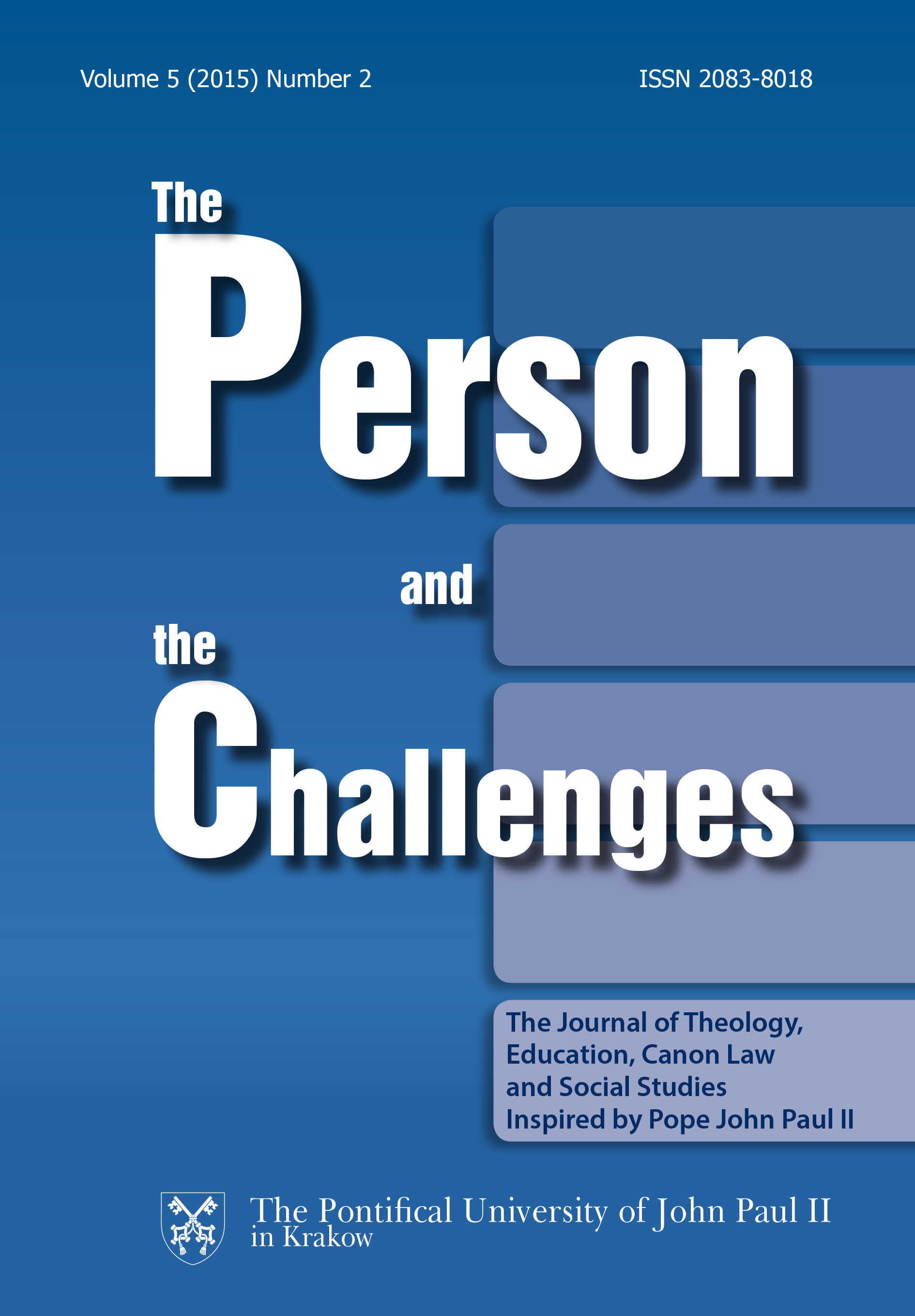Therapeutic Overzealousness. A Debate on Criteria for Withholding and Withdrawing Life-Sustaining Treatment
DOI:
https://doi.org/10.15633/pch.1524Słowa kluczowe:
Dying, futile treatment, overzealous therapy, basic care, conscience clause, advance decision, truth at the sickbedAbstrakt
Greater human longevity is one of the biggest achievements of medicine. Timely medical interventions save countless human lives. But some of them, especially those undertaken in the face of imminent death, often generate serious ethical dilemmas. After reaching a certain critical point, the otherwise welcomed and blessed possibilities of prolonging life sometimes degenerate into a painful prolongation of dying. A spontaneous moral intuition, as well as a more balanced, careful ethical reflection – for which human life constitutes the highest value – permits withdrawal of ineffective therapy. But just what are the criteria for making that crucial decision to terminate a medical therapy? How does one define them? The article opens with the overview of terminology applied to medical interventions that fall into the category of inadequate treatment, both from the perspective of medical futility (futile treatment), the standpoint of the physician (overzealous treatment) and the actual suffering of the patient (burdensome treatment). It then examines the criteria for the termination of treatment, among which the prognosis of imminent death and disagreements over the extent of the basic medical care play crucial roles. The final parts of the article focus on some additional, though by no means less important, issues relating to end of life, like the truth at the sickbed, patient’s advance decision concerning the extent of medical interventions he is willing to accept and the physician’s conscience clause.Bibliografia
Aszyk P., Granice leczenia. Etyczny problem odstąpienia od interwencji medycznych, Warszawa, Rhetos 2006.
Beauchamp T. L., Childress J. F., Principles of Biomedical Ethics, 7th ed., New York, Oxford University Press 2013.
Benzenhöfer U., Euthanasie und Sterbehilfe in Geschichte und Gegenwart, München, Verlag C. H. Beck 1999.
Calipari M., The principle of Ethical Adequacy in the Use of Means of Preserving Life: Between Therapeutic Excess and Abandonment of the Patient, in: Alongside the Incurably Sick and Dying Person: Ethical and Practical Apsects, E. Scgreccia, J. Laffitte (ed.), Libreria Editrice Vaticana, Vatican City 1999, p. 158–177.
Chyrowicz B., Bioetyka – anatomia sporu, Kraków, Znak 2015.
Catechism of the Catholic Church.
Council of Europe, Resolution 1763 (2010). The right to conscientious objection in lawful medical care, in: http://assembly.coe.int/nw/xml/XRef/X2H-Xref-ViewPDF.asp?FileID=17909&lang=en (30.06.2015).
Concluding Document of the Fifth Assembly of the Pontifical Academy for Life, in: J. de Dios Vial Correa, E. Sgreccia (eds.), The Dignity of the Dying Person, Città del Vaticano, 2000, p. 25–28.
Diamond E. F., A Catholic Guide To Medical Ethics. Catholic Principles in Clinical Practice, The Palos Park, Linacre Institut 2001.
Eijk W. J., Shortening life through suspension or omission of life prolonging medical treatment, in: W. J. Eijk et al. (Ed.), Manual of Catholich Medical Ethics. Responsible Healthcare from a Cathilic Perspective, Ballarat, Conor Court Publishing, 2010, p. 561–582.
Gormally L., Personal and social responsibility in the context oft he defense of human life: the question of cooperation in evil, in: E. Sgreccia, J. Laffitte, Christian Conscience in Support of the Right to Llife, Citta del Vaticano, Libreria Editrice Vaticana 2008, p. 92–111.
John Paul II, Evangelium Vitae, in: http://w2.vatican.va/content/john-paul-ii/en/encyclicals/documents/hf_jp-ii_enc_25031995_evangelium-vitae.html (30.06.2015).
John Paul II, Address to the World Organization of Gastro-Enterology, 23 March 2002, 2, in: http://w2.vatican.va/content/john-paul-ii/en/speeches/2002/march/documents/hf_jp-ii_spe_20020323_congr-gastroenterologia.html (30.06.2015).
Feinendegen N., Höver G. (Eds.), Der Hirntod – Ein “zweites Fenster” auf den Tod des Menschen? Zum Neuansatz in der Debatte um das neurologische Kriterium durch den US-Bioethikrat, Königshausen & Neumann, Würzburg 2013.
Sahm S., Medizinische Entscheidungen am Lebensende. Alternativen zur Patientenverfügung, “Forschung Frankfurt” 2 (2007), p. 48–52.
Schockenhoff E., Ethik des Lebens. Grundlagen und neue Herausforderungen, Freiburg-Basel-Wien, Herder 2009.
Schockenhoff E., Zur Lüge Verdammt? Politik, Medien, Medizin, Justiz, Wissenschaft und die Ethik der Wahrheit, Herder, Freiburg-Basel-Wien 2000.
Sgreccia E., Personalist Bioethics. Foundations and Applications, Philadelphia NCBC 2012.
Skalski J., Bątkiewicz-Brożek J., Mam odwagę mówić o cudzie, Kraków, Znak 2015.
Stanisz P., Pawlikowski J., Ordon M. (eds.), Sprzeciw sumienia w praktyce medycznej – aspekty etyczne i prawne, Lublin, KUL 2014.
Virt G., Leben bis zum Ende. Zur Ethik des Sterbens und des Todes, Innsbruck-Wien, Tyrolia 1998.
Pobrania
Opublikowane
Numer
Dział
Licencja
Prawa autorskie (c) 2015 Marian Machinek

Utwór dostępny jest na licencji Creative Commons Uznanie autorstwa 4.0 Międzynarodowe.
Autorzy publikujący w czasopiśmie udzielają jego wydawcy zgody o następującej treści:
- Autor zachowuje autorskie prawa majątkowe do utworu, a jednocześnie udziela wydawcy czasopisma zgody na jego pierwszą publikację w wersji drukowanej i wersji online na licencji Creative Commons Uznanie autorstwa 4.0 Międzynarodowe oraz zgody na wykonywanie opracowań, w tym przekładów.
- Autor ma możliwość udzielania zgody niewyłącznej na opublikowanie utworu w wersji, która ukazała się w czasopiśmie (np. zamieszczenia go w repozytorium instytucjonalnym lub opublikowania w książce), wraz z informacją o jego pierwszej publikacji w czasopiśmie.
- Autor może umieścić swój utwór online (np. w repozytorium instytucjonalnym lub na swojej stronie internetowej) jeszcze przed zgłoszeniem utworu do czasopisma.

